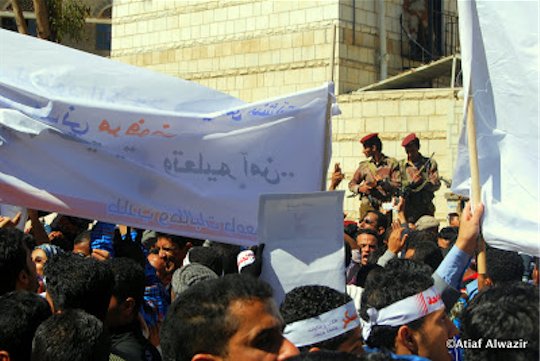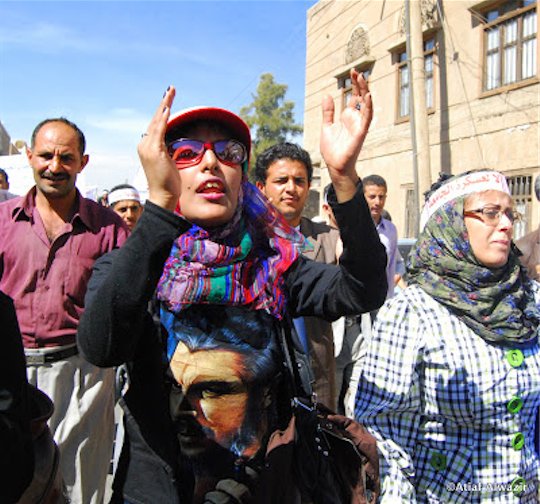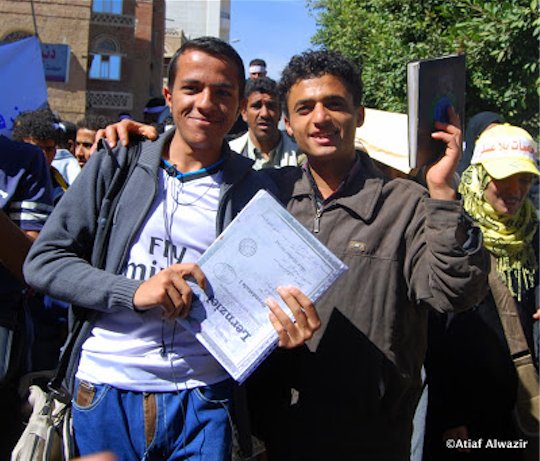[The following account was published by Woman From Yemen on 23 December 2012.]
Yesterday, a large crowd of students and activists met at the gate of Sanaa University then marched to the prime minister`s office near the cabinet to protest the continued militarization of the campus.
The protest was organized by Sanaa university students to demand an end to the presence of the military in the education facility. Soldiers control the entrances of Sanaa university and frequently check the bags of students as they enter their space of learning. State security also keeps track of "political" students and has arrested and beaten students in the past. Students complain that the campus is full of tanks and guns, and want them to be replaced by pens and notebooks as a step towards a city free of military compounds. These demands were expressed in this video by the group "Sanaa University Students` Revolution" advocating others to join the protest.
Upon arrival at the prime minister`s office, protesters began moving closer to the gate and as chants became louder and louder the soldiers protecting the government institution fired their guns in the air to intimidate and disperse protesters. The shooting continued for about 15 minutes and soldiers pushed protesters and beat them with metal batons as Sarah Jamal explained in her blog post.
As people began to run away from the soldiers, I hid with three female university students in a small alley. It was their first protest and they were terrified. As my heart was pumping faster and faster, I tried to comfort them and told them that everything will be ok. Then the soldiers came and shot in the air yelling at us to leave. We did as we were told.

Although this protest was nearly not as bad as previous protests, it was quite sad to see that two years later, soldiers still resort to their guns as the first means of attempting to disperse peaceful protesters.
As I was running to join the crowd at the end of the street, a taxi on 26 September street stopped, and the window rolled down. A women in the car asked me: "why are they shooting?" I explained that this was intended as a peaceful demonstration but the soldiers decided to use their guns anyways. She looked at me and said: "What are you doing here? this job is for men, not for you. Men enjoy these things, let them do it!"
I stood there thinking, this is really not the time to have this conversation, should I tell her that men don`t really wake up in the morning thinking oh i would love to die in a protest today.. or should I tell her that women have been protesting for years alongside their male counterparts?
Instead, as my mind was worried about my sister and friends, I told her: "We, men and women, are in this together, we should struggle together". With a friendly smile she responded: "I should take you home, get in", I smiled back and said: "thank you for your concern, but I really do have to look for my sister and friends." I waved goodbye and headed back to the crowd.

Each protest is filled with different layers of hopes, dreams, and calls for equality under the banner of demands for a civil state.
Yesterday`s protest was not all bad, the mood of this day reminded me of the good old days in the first months of the revolution when independent students went out to protest direct needs such as employment, end to corruption, and better education and healthcare.
Despite the terrifying sounds of gun shot and the beatings, the feeling was mixed with a joyous reunion of independents reminding all of us that the revolution will not end and that the martyrs will not be forgotten.
